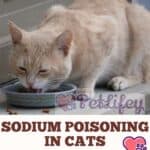
Today we try to clarify an important point regarding dog nutrition: carbohydrates.
One of the most important things for your pet to stay healthy is a quality diet adapted to their needs. Do we know what we are feeding our dog? In this article we will try to answer the question: are carbohydrates bad for dogs?
What are carbohydrates?
Carbohydrates are nothing more than chemical bonds of three main elements: carbon, oxygen and hydrogen. Their main function is to provide energy to the body.
To this end, carbohydrates are broken down into smaller glucose molecules, which will be the primary source when the body needs energy in a short period of time. When this energy requirement is prolonged over time, lipids are usually used.
There are different types of carbohydrates, depending on their structural complexity. Generally, they are classified into two large groups:
- Simple : they are those formed by small units and which are metabolized quickly. They are divided into monosaccharides and disaccharides. Among the latter we can find glucose or lactose.
- Compounds : they consist of chains of over 10 monosaccharides. This makes their decomposition more expensive and, therefore, the digestive system has to specialize. Compound carbohydrates include glycogen or cellulose.
Are carbohydrates bad for dogs?
We are faced with an issue that is far from resolved and that will certainly be the subject of controversy for a long time. The best answer we can give you is that carbohydrates are not bad for our dog , if we know which and how many we are providing.
In general, we tend to think that what’s good for us must be good for our pet. While carbohydrates are the ideal energy source for humans, dogs’ digestive systems can have trouble processing them, especially long-chain ones.
This is not to say that all carbohydrates should be eliminated from a dog’s diet, but they certainly shouldn’t form the basis of their diet. The main source of energy for dogs is fat, so feeding excess carbohydrates can be counterproductive.
So can we include them in the diet?
Despite being carnivorous animals, dogs and other wildlife require small amounts of carbohydrates in their diets. Either way, whether it’s through the herbivorous prey they hunt or the grass they use to purge themselves, carbohydrates are still present in their diet.
As we have said, the important thing is not what, but how. An overdose of carbohydrates will have negative effects on your pet’s digestive health, but moderate amounts of foods that contain them can be a good dietary supplement.
Some commercial foods are high in carbohydrates and the reason is probably cheap. Therefore, it is convenient to make sure what you are feeding your dog and always look at the nutrition label to find out.
If you opt for a natural diet, you can add fruit or vegetables and small portions of rice or pasta to your usual diet . If in doubt, your vet or animal nutrition expert can help you create a balanced diet specifically for your pet.






